---
license: apache-2.0
base_model: runwayml/stable-diffusion-v1-5
tags:
- art
- t2i-adapter
- controlnet
- stable-diffusion
- image-to-image
---
# T2I Adapter - Segment
T2I Adapter is a network providing additional conditioning to stable diffusion. Each t2i checkpoint takes a different type of conditioning as input and is used with a specific base stable diffusion checkpoint.
This checkpoint provides conditioning on semantic segmentation for the stable diffusion 1.4 checkpoint.
## Model Details
- **Developed by:** T2I-Adapter: Learning Adapters to Dig out More Controllable Ability for Text-to-Image Diffusion Models
- **Model type:** Diffusion-based text-to-image generation model
- **Language(s):** English
- **License:** Apache 2.0
- **Resources for more information:** [GitHub Repository](https://github.com/TencentARC/T2I-Adapter), [Paper](https://arxiv.org/abs/2302.08453).
- **Cite as:**
@misc{
title={T2I-Adapter: Learning Adapters to Dig out More Controllable Ability for Text-to-Image Diffusion Models},
author={Chong Mou, Xintao Wang, Liangbin Xie, Yanze Wu, Jian Zhang, Zhongang Qi, Ying Shan, Xiaohu Qie},
year={2023},
eprint={2302.08453},
archivePrefix={arXiv},
primaryClass={cs.CV}
}
### Checkpoints
| Model Name | Control Image Overview| Control Image Example | Generated Image Example |
|---|---|---|---|
|[TencentARC/t2iadapter_color_sd14v1](https://huggingface.co/TencentARC/t2iadapter_color_sd14v1)
*Trained with spatial color palette* | A image with 8x8 color palette.|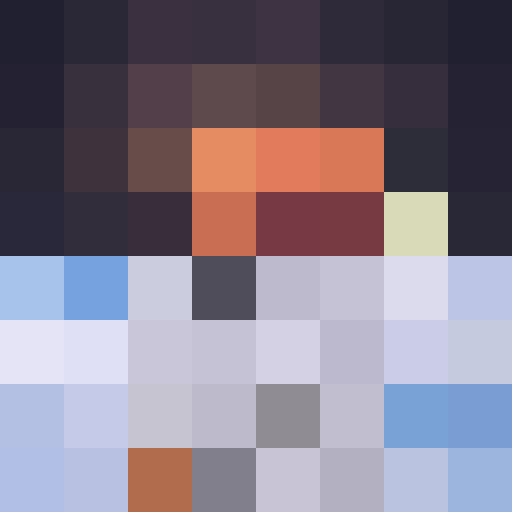 |
|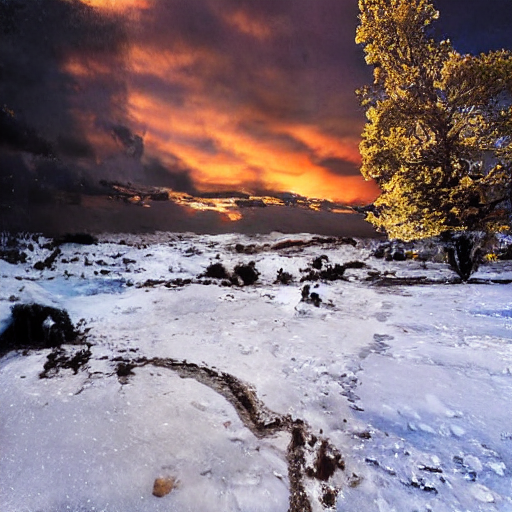 |
|[TencentARC/t2iadapter_canny_sd14v1](https://huggingface.co/TencentARC/t2iadapter_canny_sd14v1)
|
|[TencentARC/t2iadapter_canny_sd14v1](https://huggingface.co/TencentARC/t2iadapter_canny_sd14v1)
*Trained with canny edge detection* | A monochrome image with white edges on a black background.|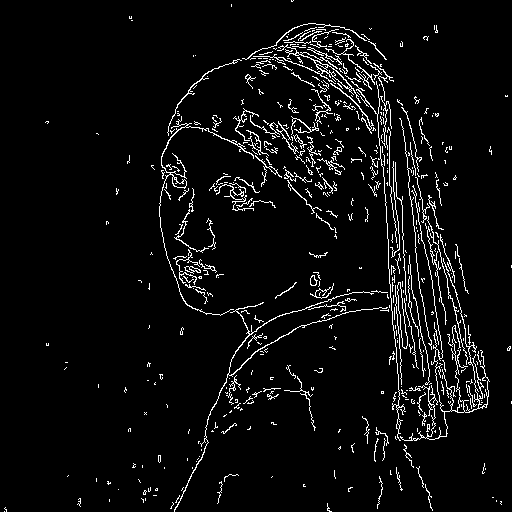 |
|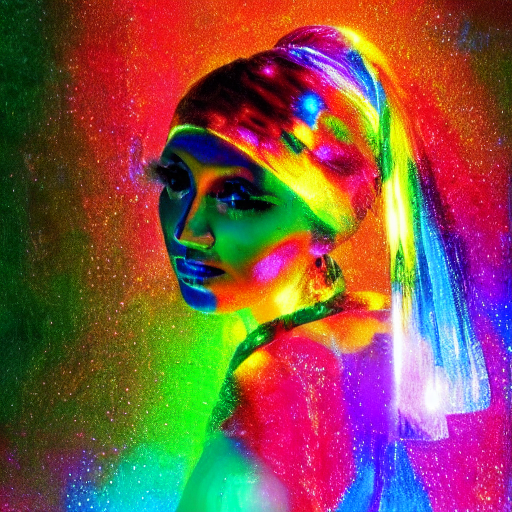 |
|[TencentARC/t2iadapter_sketch_sd14v1](https://huggingface.co/TencentARC/t2iadapter_sketch_sd14v1)
|
|[TencentARC/t2iadapter_sketch_sd14v1](https://huggingface.co/TencentARC/t2iadapter_sketch_sd14v1)
*Trained with [PidiNet](https://github.com/zhuoinoulu/pidinet) edge detection* | A hand-drawn monochrome image with white outlines on a black background.|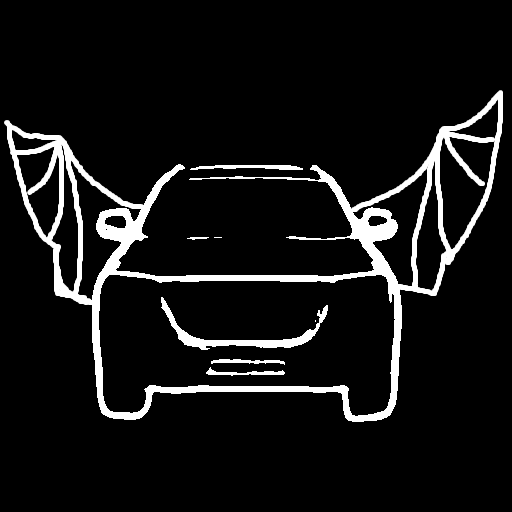 |
|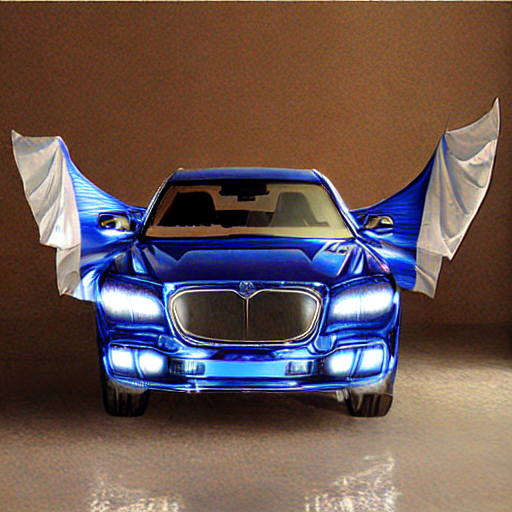 |
|[TencentARC/t2iadapter_depth_sd14v1](https://huggingface.co/TencentARC/t2iadapter_depth_sd14v1)
|
|[TencentARC/t2iadapter_depth_sd14v1](https://huggingface.co/TencentARC/t2iadapter_depth_sd14v1)
*Trained with Midas depth estimation* | A grayscale image with black representing deep areas and white representing shallow areas.|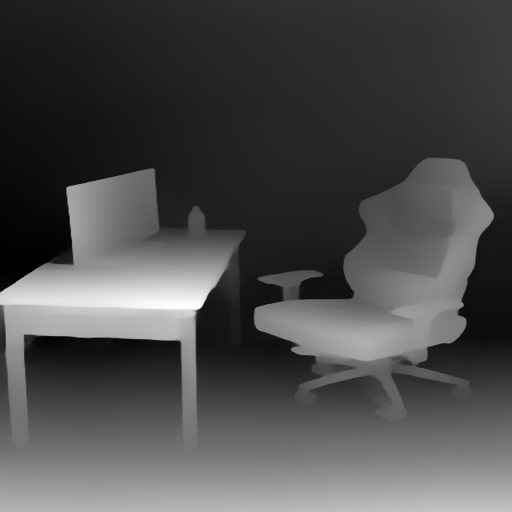 |
|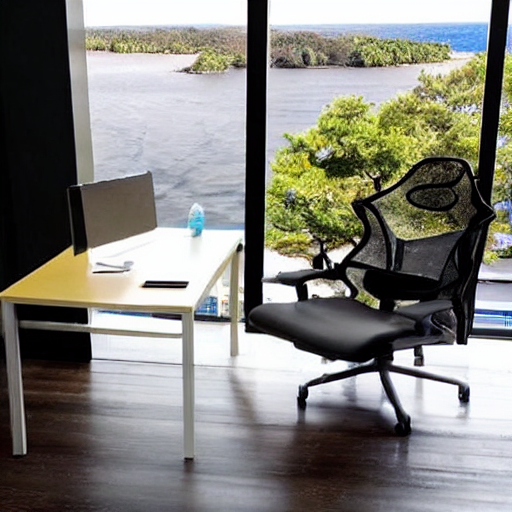 |
|[TencentARC/t2iadapter_openpose_sd14v1](https://huggingface.co/TencentARC/t2iadapter_openpose_sd14v1)
|
|[TencentARC/t2iadapter_openpose_sd14v1](https://huggingface.co/TencentARC/t2iadapter_openpose_sd14v1)
*Trained with OpenPose bone image* | A [OpenPose bone](https://github.com/CMU-Perceptual-Computing-Lab/openpose) image.|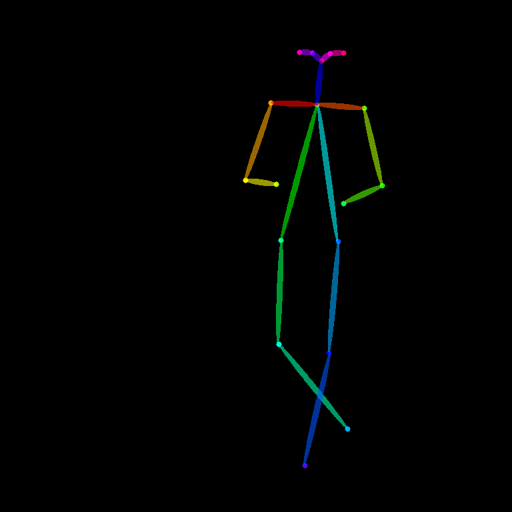 |
| |
|[TencentARC/t2iadapter_keypose_sd14v1](https://huggingface.co/TencentARC/t2iadapter_keypose_sd14v1)
|
|[TencentARC/t2iadapter_keypose_sd14v1](https://huggingface.co/TencentARC/t2iadapter_keypose_sd14v1)
*Trained with mmpose skeleton image* | A [mmpose skeleton](https://github.com/open-mmlab/mmpose) image.|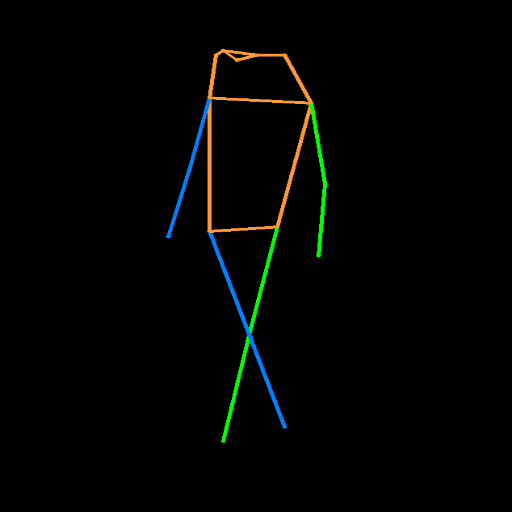 |
|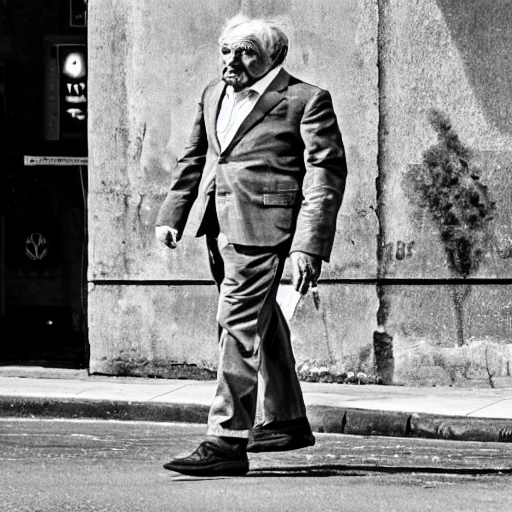 |
|[TencentARC/t2iadapter_seg_sd14v1](https://huggingface.co/TencentARC/t2iadapter_seg_sd14v1)
|
|[TencentARC/t2iadapter_seg_sd14v1](https://huggingface.co/TencentARC/t2iadapter_seg_sd14v1)
*Trained with semantic segmentation* | An [custom](https://github.com/TencentARC/T2I-Adapter/discussions/25) segmentation protocol image.|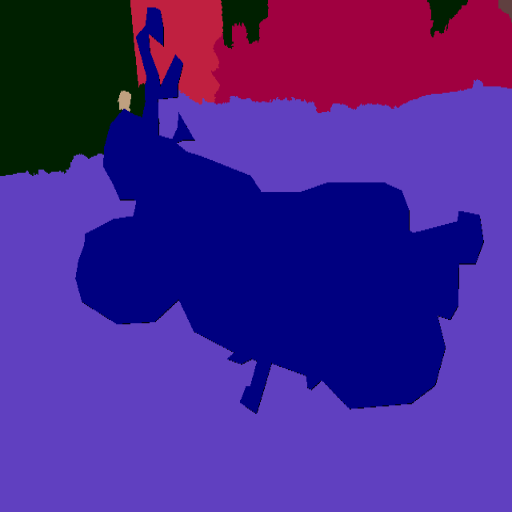 |
|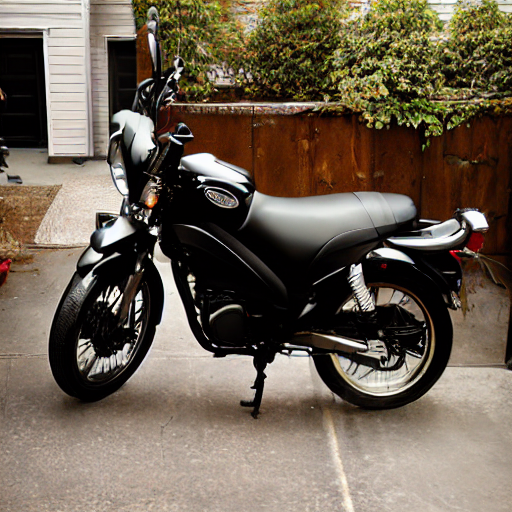 |
|[TencentARC/t2iadapter_canny_sd15v2](https://huggingface.co/TencentARC/t2iadapter_canny_sd15v2)||
|[TencentARC/t2iadapter_depth_sd15v2](https://huggingface.co/TencentARC/t2iadapter_depth_sd15v2)||
|[TencentARC/t2iadapter_sketch_sd15v2](https://huggingface.co/TencentARC/t2iadapter_sketch_sd15v2)||
|[TencentARC/t2iadapter_zoedepth_sd15v1](https://huggingface.co/TencentARC/t2iadapter_zoedepth_sd15v1)||
## Example
1. Dependencies
```sh
pip install diffusers transformers
```
2. Run code:
```python
import torch
from PIL import Image
import numpy as np
from transformers import AutoImageProcessor, UperNetForSemanticSegmentation
from diffusers import (
T2IAdapter,
StableDiffusionAdapterPipeline
)
ada_palette = np.asarray([
[0, 0, 0],
[120, 120, 120],
[180, 120, 120],
[6, 230, 230],
[80, 50, 50],
[4, 200, 3],
[120, 120, 80],
[140, 140, 140],
[204, 5, 255],
[230, 230, 230],
[4, 250, 7],
[224, 5, 255],
[235, 255, 7],
[150, 5, 61],
[120, 120, 70],
[8, 255, 51],
[255, 6, 82],
[143, 255, 140],
[204, 255, 4],
[255, 51, 7],
[204, 70, 3],
[0, 102, 200],
[61, 230, 250],
[255, 6, 51],
[11, 102, 255],
[255, 7, 71],
[255, 9, 224],
[9, 7, 230],
[220, 220, 220],
[255, 9, 92],
[112, 9, 255],
[8, 255, 214],
[7, 255, 224],
[255, 184, 6],
[10, 255, 71],
[255, 41, 10],
[7, 255, 255],
[224, 255, 8],
[102, 8, 255],
[255, 61, 6],
[255, 194, 7],
[255, 122, 8],
[0, 255, 20],
[255, 8, 41],
[255, 5, 153],
[6, 51, 255],
[235, 12, 255],
[160, 150, 20],
[0, 163, 255],
[140, 140, 140],
[250, 10, 15],
[20, 255, 0],
[31, 255, 0],
[255, 31, 0],
[255, 224, 0],
[153, 255, 0],
[0, 0, 255],
[255, 71, 0],
[0, 235, 255],
[0, 173, 255],
[31, 0, 255],
[11, 200, 200],
[255, 82, 0],
[0, 255, 245],
[0, 61, 255],
[0, 255, 112],
[0, 255, 133],
[255, 0, 0],
[255, 163, 0],
[255, 102, 0],
[194, 255, 0],
[0, 143, 255],
[51, 255, 0],
[0, 82, 255],
[0, 255, 41],
[0, 255, 173],
[10, 0, 255],
[173, 255, 0],
[0, 255, 153],
[255, 92, 0],
[255, 0, 255],
[255, 0, 245],
[255, 0, 102],
[255, 173, 0],
[255, 0, 20],
[255, 184, 184],
[0, 31, 255],
[0, 255, 61],
[0, 71, 255],
[255, 0, 204],
[0, 255, 194],
[0, 255, 82],
[0, 10, 255],
[0, 112, 255],
[51, 0, 255],
[0, 194, 255],
[0, 122, 255],
[0, 255, 163],
[255, 153, 0],
[0, 255, 10],
[255, 112, 0],
[143, 255, 0],
[82, 0, 255],
[163, 255, 0],
[255, 235, 0],
[8, 184, 170],
[133, 0, 255],
[0, 255, 92],
[184, 0, 255],
[255, 0, 31],
[0, 184, 255],
[0, 214, 255],
[255, 0, 112],
[92, 255, 0],
[0, 224, 255],
[112, 224, 255],
[70, 184, 160],
[163, 0, 255],
[153, 0, 255],
[71, 255, 0],
[255, 0, 163],
[255, 204, 0],
[255, 0, 143],
[0, 255, 235],
[133, 255, 0],
[255, 0, 235],
[245, 0, 255],
[255, 0, 122],
[255, 245, 0],
[10, 190, 212],
[214, 255, 0],
[0, 204, 255],
[20, 0, 255],
[255, 255, 0],
[0, 153, 255],
[0, 41, 255],
[0, 255, 204],
[41, 0, 255],
[41, 255, 0],
[173, 0, 255],
[0, 245, 255],
[71, 0, 255],
[122, 0, 255],
[0, 255, 184],
[0, 92, 255],
[184, 255, 0],
[0, 133, 255],
[255, 214, 0],
[25, 194, 194],
[102, 255, 0],
[92, 0, 255],
])
image_processor = AutoImageProcessor.from_pretrained("openmmlab/upernet-convnext-small")
image_segmentor = UperNetForSemanticSegmentation.from_pretrained("openmmlab/upernet-convnext-small")
checkpoint = "lllyasviel/control_v11p_sd15_seg"
image = Image.open('./images/seg_input.jpeg')
pixel_values = image_processor(image, return_tensors="pt").pixel_values
with torch.no_grad():
outputs = image_segmentor(pixel_values)
seg = image_processor.post_process_semantic_segmentation(outputs, target_sizes=[image.size[::-1]])[0]
color_seg = np.zeros((seg.shape[0], seg.shape[1], 3), dtype=np.uint8) # height, width, 3
for label, color in enumerate(ada_palette):
color_seg[seg == label, :] = color
color_seg = color_seg.astype(np.uint8)
control_image = Image.fromarray(color_seg)
control_image.save("./images/segment_image.png")
adapter = T2IAdapter.from_pretrained("TencentARC/t2iadapter_seg_sd14v1", torch_dtype=torch.float16)
pipe = StableDiffusionAdapterPipeline.from_pretrained(
"CompVis/stable-diffusion-v1-4", adapter=adapter, safety_checker=None, torch_dtype=torch.float16, variant="fp16"
)
pipe.to('cuda')
generator = torch.Generator().manual_seed(0)
sketch_image_out = pipe(prompt="motorcycles driving", image=control_image, generator=generator).images[0]
sketch_image_out.save('./images/seg_image_out.png')
```

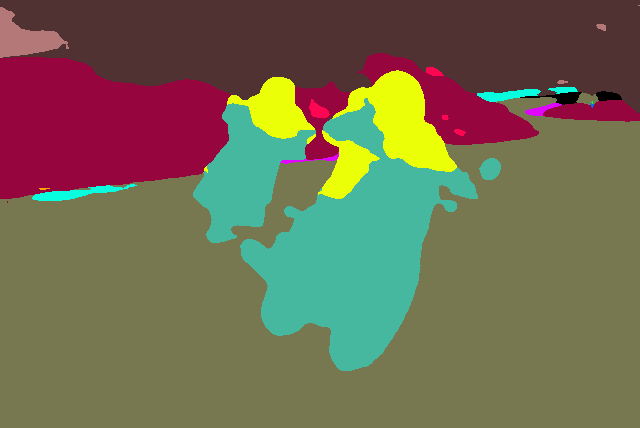
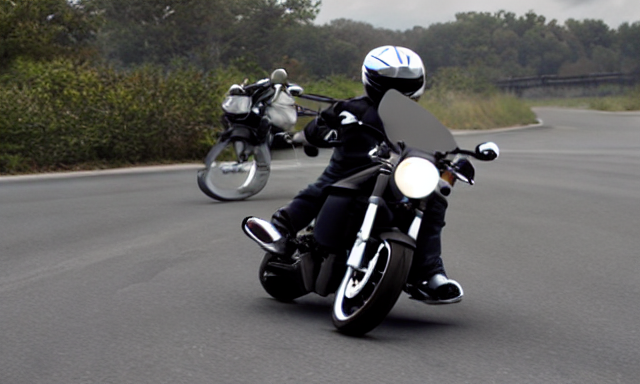
|
|[TencentARC/t2iadapter_canny_sd15v2](https://huggingface.co/TencentARC/t2iadapter_canny_sd15v2)||
|[TencentARC/t2iadapter_depth_sd15v2](https://huggingface.co/TencentARC/t2iadapter_depth_sd15v2)||
|[TencentARC/t2iadapter_sketch_sd15v2](https://huggingface.co/TencentARC/t2iadapter_sketch_sd15v2)||
|[TencentARC/t2iadapter_zoedepth_sd15v1](https://huggingface.co/TencentARC/t2iadapter_zoedepth_sd15v1)||
## Example
1. Dependencies
```sh
pip install diffusers transformers
```
2. Run code:
```python
import torch
from PIL import Image
import numpy as np
from transformers import AutoImageProcessor, UperNetForSemanticSegmentation
from diffusers import (
T2IAdapter,
StableDiffusionAdapterPipeline
)
ada_palette = np.asarray([
[0, 0, 0],
[120, 120, 120],
[180, 120, 120],
[6, 230, 230],
[80, 50, 50],
[4, 200, 3],
[120, 120, 80],
[140, 140, 140],
[204, 5, 255],
[230, 230, 230],
[4, 250, 7],
[224, 5, 255],
[235, 255, 7],
[150, 5, 61],
[120, 120, 70],
[8, 255, 51],
[255, 6, 82],
[143, 255, 140],
[204, 255, 4],
[255, 51, 7],
[204, 70, 3],
[0, 102, 200],
[61, 230, 250],
[255, 6, 51],
[11, 102, 255],
[255, 7, 71],
[255, 9, 224],
[9, 7, 230],
[220, 220, 220],
[255, 9, 92],
[112, 9, 255],
[8, 255, 214],
[7, 255, 224],
[255, 184, 6],
[10, 255, 71],
[255, 41, 10],
[7, 255, 255],
[224, 255, 8],
[102, 8, 255],
[255, 61, 6],
[255, 194, 7],
[255, 122, 8],
[0, 255, 20],
[255, 8, 41],
[255, 5, 153],
[6, 51, 255],
[235, 12, 255],
[160, 150, 20],
[0, 163, 255],
[140, 140, 140],
[250, 10, 15],
[20, 255, 0],
[31, 255, 0],
[255, 31, 0],
[255, 224, 0],
[153, 255, 0],
[0, 0, 255],
[255, 71, 0],
[0, 235, 255],
[0, 173, 255],
[31, 0, 255],
[11, 200, 200],
[255, 82, 0],
[0, 255, 245],
[0, 61, 255],
[0, 255, 112],
[0, 255, 133],
[255, 0, 0],
[255, 163, 0],
[255, 102, 0],
[194, 255, 0],
[0, 143, 255],
[51, 255, 0],
[0, 82, 255],
[0, 255, 41],
[0, 255, 173],
[10, 0, 255],
[173, 255, 0],
[0, 255, 153],
[255, 92, 0],
[255, 0, 255],
[255, 0, 245],
[255, 0, 102],
[255, 173, 0],
[255, 0, 20],
[255, 184, 184],
[0, 31, 255],
[0, 255, 61],
[0, 71, 255],
[255, 0, 204],
[0, 255, 194],
[0, 255, 82],
[0, 10, 255],
[0, 112, 255],
[51, 0, 255],
[0, 194, 255],
[0, 122, 255],
[0, 255, 163],
[255, 153, 0],
[0, 255, 10],
[255, 112, 0],
[143, 255, 0],
[82, 0, 255],
[163, 255, 0],
[255, 235, 0],
[8, 184, 170],
[133, 0, 255],
[0, 255, 92],
[184, 0, 255],
[255, 0, 31],
[0, 184, 255],
[0, 214, 255],
[255, 0, 112],
[92, 255, 0],
[0, 224, 255],
[112, 224, 255],
[70, 184, 160],
[163, 0, 255],
[153, 0, 255],
[71, 255, 0],
[255, 0, 163],
[255, 204, 0],
[255, 0, 143],
[0, 255, 235],
[133, 255, 0],
[255, 0, 235],
[245, 0, 255],
[255, 0, 122],
[255, 245, 0],
[10, 190, 212],
[214, 255, 0],
[0, 204, 255],
[20, 0, 255],
[255, 255, 0],
[0, 153, 255],
[0, 41, 255],
[0, 255, 204],
[41, 0, 255],
[41, 255, 0],
[173, 0, 255],
[0, 245, 255],
[71, 0, 255],
[122, 0, 255],
[0, 255, 184],
[0, 92, 255],
[184, 255, 0],
[0, 133, 255],
[255, 214, 0],
[25, 194, 194],
[102, 255, 0],
[92, 0, 255],
])
image_processor = AutoImageProcessor.from_pretrained("openmmlab/upernet-convnext-small")
image_segmentor = UperNetForSemanticSegmentation.from_pretrained("openmmlab/upernet-convnext-small")
checkpoint = "lllyasviel/control_v11p_sd15_seg"
image = Image.open('./images/seg_input.jpeg')
pixel_values = image_processor(image, return_tensors="pt").pixel_values
with torch.no_grad():
outputs = image_segmentor(pixel_values)
seg = image_processor.post_process_semantic_segmentation(outputs, target_sizes=[image.size[::-1]])[0]
color_seg = np.zeros((seg.shape[0], seg.shape[1], 3), dtype=np.uint8) # height, width, 3
for label, color in enumerate(ada_palette):
color_seg[seg == label, :] = color
color_seg = color_seg.astype(np.uint8)
control_image = Image.fromarray(color_seg)
control_image.save("./images/segment_image.png")
adapter = T2IAdapter.from_pretrained("TencentARC/t2iadapter_seg_sd14v1", torch_dtype=torch.float16)
pipe = StableDiffusionAdapterPipeline.from_pretrained(
"CompVis/stable-diffusion-v1-4", adapter=adapter, safety_checker=None, torch_dtype=torch.float16, variant="fp16"
)
pipe.to('cuda')
generator = torch.Generator().manual_seed(0)
sketch_image_out = pipe(prompt="motorcycles driving", image=control_image, generator=generator).images[0]
sketch_image_out.save('./images/seg_image_out.png')
```


 |
| |
|[TencentARC/t2iadapter_canny_sd14v1](https://huggingface.co/TencentARC/t2iadapter_canny_sd14v1)
|
|[TencentARC/t2iadapter_canny_sd14v1](https://huggingface.co/TencentARC/t2iadapter_canny_sd14v1) |
| |
|[TencentARC/t2iadapter_sketch_sd14v1](https://huggingface.co/TencentARC/t2iadapter_sketch_sd14v1)
|
|[TencentARC/t2iadapter_sketch_sd14v1](https://huggingface.co/TencentARC/t2iadapter_sketch_sd14v1) |
| |
|[TencentARC/t2iadapter_depth_sd14v1](https://huggingface.co/TencentARC/t2iadapter_depth_sd14v1)
|
|[TencentARC/t2iadapter_depth_sd14v1](https://huggingface.co/TencentARC/t2iadapter_depth_sd14v1) |
| |
|[TencentARC/t2iadapter_openpose_sd14v1](https://huggingface.co/TencentARC/t2iadapter_openpose_sd14v1)
|
|[TencentARC/t2iadapter_openpose_sd14v1](https://huggingface.co/TencentARC/t2iadapter_openpose_sd14v1) |
| |
|[TencentARC/t2iadapter_keypose_sd14v1](https://huggingface.co/TencentARC/t2iadapter_keypose_sd14v1)
|
|[TencentARC/t2iadapter_keypose_sd14v1](https://huggingface.co/TencentARC/t2iadapter_keypose_sd14v1) |
| |
|[TencentARC/t2iadapter_seg_sd14v1](https://huggingface.co/TencentARC/t2iadapter_seg_sd14v1)
|
|[TencentARC/t2iadapter_seg_sd14v1](https://huggingface.co/TencentARC/t2iadapter_seg_sd14v1) |
| |
|[TencentARC/t2iadapter_canny_sd15v2](https://huggingface.co/TencentARC/t2iadapter_canny_sd15v2)||
|[TencentARC/t2iadapter_depth_sd15v2](https://huggingface.co/TencentARC/t2iadapter_depth_sd15v2)||
|[TencentARC/t2iadapter_sketch_sd15v2](https://huggingface.co/TencentARC/t2iadapter_sketch_sd15v2)||
|[TencentARC/t2iadapter_zoedepth_sd15v1](https://huggingface.co/TencentARC/t2iadapter_zoedepth_sd15v1)||
## Example
1. Dependencies
```sh
pip install diffusers transformers
```
2. Run code:
```python
import torch
from PIL import Image
import numpy as np
from transformers import AutoImageProcessor, UperNetForSemanticSegmentation
from diffusers import (
T2IAdapter,
StableDiffusionAdapterPipeline
)
ada_palette = np.asarray([
[0, 0, 0],
[120, 120, 120],
[180, 120, 120],
[6, 230, 230],
[80, 50, 50],
[4, 200, 3],
[120, 120, 80],
[140, 140, 140],
[204, 5, 255],
[230, 230, 230],
[4, 250, 7],
[224, 5, 255],
[235, 255, 7],
[150, 5, 61],
[120, 120, 70],
[8, 255, 51],
[255, 6, 82],
[143, 255, 140],
[204, 255, 4],
[255, 51, 7],
[204, 70, 3],
[0, 102, 200],
[61, 230, 250],
[255, 6, 51],
[11, 102, 255],
[255, 7, 71],
[255, 9, 224],
[9, 7, 230],
[220, 220, 220],
[255, 9, 92],
[112, 9, 255],
[8, 255, 214],
[7, 255, 224],
[255, 184, 6],
[10, 255, 71],
[255, 41, 10],
[7, 255, 255],
[224, 255, 8],
[102, 8, 255],
[255, 61, 6],
[255, 194, 7],
[255, 122, 8],
[0, 255, 20],
[255, 8, 41],
[255, 5, 153],
[6, 51, 255],
[235, 12, 255],
[160, 150, 20],
[0, 163, 255],
[140, 140, 140],
[250, 10, 15],
[20, 255, 0],
[31, 255, 0],
[255, 31, 0],
[255, 224, 0],
[153, 255, 0],
[0, 0, 255],
[255, 71, 0],
[0, 235, 255],
[0, 173, 255],
[31, 0, 255],
[11, 200, 200],
[255, 82, 0],
[0, 255, 245],
[0, 61, 255],
[0, 255, 112],
[0, 255, 133],
[255, 0, 0],
[255, 163, 0],
[255, 102, 0],
[194, 255, 0],
[0, 143, 255],
[51, 255, 0],
[0, 82, 255],
[0, 255, 41],
[0, 255, 173],
[10, 0, 255],
[173, 255, 0],
[0, 255, 153],
[255, 92, 0],
[255, 0, 255],
[255, 0, 245],
[255, 0, 102],
[255, 173, 0],
[255, 0, 20],
[255, 184, 184],
[0, 31, 255],
[0, 255, 61],
[0, 71, 255],
[255, 0, 204],
[0, 255, 194],
[0, 255, 82],
[0, 10, 255],
[0, 112, 255],
[51, 0, 255],
[0, 194, 255],
[0, 122, 255],
[0, 255, 163],
[255, 153, 0],
[0, 255, 10],
[255, 112, 0],
[143, 255, 0],
[82, 0, 255],
[163, 255, 0],
[255, 235, 0],
[8, 184, 170],
[133, 0, 255],
[0, 255, 92],
[184, 0, 255],
[255, 0, 31],
[0, 184, 255],
[0, 214, 255],
[255, 0, 112],
[92, 255, 0],
[0, 224, 255],
[112, 224, 255],
[70, 184, 160],
[163, 0, 255],
[153, 0, 255],
[71, 255, 0],
[255, 0, 163],
[255, 204, 0],
[255, 0, 143],
[0, 255, 235],
[133, 255, 0],
[255, 0, 235],
[245, 0, 255],
[255, 0, 122],
[255, 245, 0],
[10, 190, 212],
[214, 255, 0],
[0, 204, 255],
[20, 0, 255],
[255, 255, 0],
[0, 153, 255],
[0, 41, 255],
[0, 255, 204],
[41, 0, 255],
[41, 255, 0],
[173, 0, 255],
[0, 245, 255],
[71, 0, 255],
[122, 0, 255],
[0, 255, 184],
[0, 92, 255],
[184, 255, 0],
[0, 133, 255],
[255, 214, 0],
[25, 194, 194],
[102, 255, 0],
[92, 0, 255],
])
image_processor = AutoImageProcessor.from_pretrained("openmmlab/upernet-convnext-small")
image_segmentor = UperNetForSemanticSegmentation.from_pretrained("openmmlab/upernet-convnext-small")
checkpoint = "lllyasviel/control_v11p_sd15_seg"
image = Image.open('./images/seg_input.jpeg')
pixel_values = image_processor(image, return_tensors="pt").pixel_values
with torch.no_grad():
outputs = image_segmentor(pixel_values)
seg = image_processor.post_process_semantic_segmentation(outputs, target_sizes=[image.size[::-1]])[0]
color_seg = np.zeros((seg.shape[0], seg.shape[1], 3), dtype=np.uint8) # height, width, 3
for label, color in enumerate(ada_palette):
color_seg[seg == label, :] = color
color_seg = color_seg.astype(np.uint8)
control_image = Image.fromarray(color_seg)
control_image.save("./images/segment_image.png")
adapter = T2IAdapter.from_pretrained("TencentARC/t2iadapter_seg_sd14v1", torch_dtype=torch.float16)
pipe = StableDiffusionAdapterPipeline.from_pretrained(
"CompVis/stable-diffusion-v1-4", adapter=adapter, safety_checker=None, torch_dtype=torch.float16, variant="fp16"
)
pipe.to('cuda')
generator = torch.Generator().manual_seed(0)
sketch_image_out = pipe(prompt="motorcycles driving", image=control_image, generator=generator).images[0]
sketch_image_out.save('./images/seg_image_out.png')
```



|
|[TencentARC/t2iadapter_canny_sd15v2](https://huggingface.co/TencentARC/t2iadapter_canny_sd15v2)||
|[TencentARC/t2iadapter_depth_sd15v2](https://huggingface.co/TencentARC/t2iadapter_depth_sd15v2)||
|[TencentARC/t2iadapter_sketch_sd15v2](https://huggingface.co/TencentARC/t2iadapter_sketch_sd15v2)||
|[TencentARC/t2iadapter_zoedepth_sd15v1](https://huggingface.co/TencentARC/t2iadapter_zoedepth_sd15v1)||
## Example
1. Dependencies
```sh
pip install diffusers transformers
```
2. Run code:
```python
import torch
from PIL import Image
import numpy as np
from transformers import AutoImageProcessor, UperNetForSemanticSegmentation
from diffusers import (
T2IAdapter,
StableDiffusionAdapterPipeline
)
ada_palette = np.asarray([
[0, 0, 0],
[120, 120, 120],
[180, 120, 120],
[6, 230, 230],
[80, 50, 50],
[4, 200, 3],
[120, 120, 80],
[140, 140, 140],
[204, 5, 255],
[230, 230, 230],
[4, 250, 7],
[224, 5, 255],
[235, 255, 7],
[150, 5, 61],
[120, 120, 70],
[8, 255, 51],
[255, 6, 82],
[143, 255, 140],
[204, 255, 4],
[255, 51, 7],
[204, 70, 3],
[0, 102, 200],
[61, 230, 250],
[255, 6, 51],
[11, 102, 255],
[255, 7, 71],
[255, 9, 224],
[9, 7, 230],
[220, 220, 220],
[255, 9, 92],
[112, 9, 255],
[8, 255, 214],
[7, 255, 224],
[255, 184, 6],
[10, 255, 71],
[255, 41, 10],
[7, 255, 255],
[224, 255, 8],
[102, 8, 255],
[255, 61, 6],
[255, 194, 7],
[255, 122, 8],
[0, 255, 20],
[255, 8, 41],
[255, 5, 153],
[6, 51, 255],
[235, 12, 255],
[160, 150, 20],
[0, 163, 255],
[140, 140, 140],
[250, 10, 15],
[20, 255, 0],
[31, 255, 0],
[255, 31, 0],
[255, 224, 0],
[153, 255, 0],
[0, 0, 255],
[255, 71, 0],
[0, 235, 255],
[0, 173, 255],
[31, 0, 255],
[11, 200, 200],
[255, 82, 0],
[0, 255, 245],
[0, 61, 255],
[0, 255, 112],
[0, 255, 133],
[255, 0, 0],
[255, 163, 0],
[255, 102, 0],
[194, 255, 0],
[0, 143, 255],
[51, 255, 0],
[0, 82, 255],
[0, 255, 41],
[0, 255, 173],
[10, 0, 255],
[173, 255, 0],
[0, 255, 153],
[255, 92, 0],
[255, 0, 255],
[255, 0, 245],
[255, 0, 102],
[255, 173, 0],
[255, 0, 20],
[255, 184, 184],
[0, 31, 255],
[0, 255, 61],
[0, 71, 255],
[255, 0, 204],
[0, 255, 194],
[0, 255, 82],
[0, 10, 255],
[0, 112, 255],
[51, 0, 255],
[0, 194, 255],
[0, 122, 255],
[0, 255, 163],
[255, 153, 0],
[0, 255, 10],
[255, 112, 0],
[143, 255, 0],
[82, 0, 255],
[163, 255, 0],
[255, 235, 0],
[8, 184, 170],
[133, 0, 255],
[0, 255, 92],
[184, 0, 255],
[255, 0, 31],
[0, 184, 255],
[0, 214, 255],
[255, 0, 112],
[92, 255, 0],
[0, 224, 255],
[112, 224, 255],
[70, 184, 160],
[163, 0, 255],
[153, 0, 255],
[71, 255, 0],
[255, 0, 163],
[255, 204, 0],
[255, 0, 143],
[0, 255, 235],
[133, 255, 0],
[255, 0, 235],
[245, 0, 255],
[255, 0, 122],
[255, 245, 0],
[10, 190, 212],
[214, 255, 0],
[0, 204, 255],
[20, 0, 255],
[255, 255, 0],
[0, 153, 255],
[0, 41, 255],
[0, 255, 204],
[41, 0, 255],
[41, 255, 0],
[173, 0, 255],
[0, 245, 255],
[71, 0, 255],
[122, 0, 255],
[0, 255, 184],
[0, 92, 255],
[184, 255, 0],
[0, 133, 255],
[255, 214, 0],
[25, 194, 194],
[102, 255, 0],
[92, 0, 255],
])
image_processor = AutoImageProcessor.from_pretrained("openmmlab/upernet-convnext-small")
image_segmentor = UperNetForSemanticSegmentation.from_pretrained("openmmlab/upernet-convnext-small")
checkpoint = "lllyasviel/control_v11p_sd15_seg"
image = Image.open('./images/seg_input.jpeg')
pixel_values = image_processor(image, return_tensors="pt").pixel_values
with torch.no_grad():
outputs = image_segmentor(pixel_values)
seg = image_processor.post_process_semantic_segmentation(outputs, target_sizes=[image.size[::-1]])[0]
color_seg = np.zeros((seg.shape[0], seg.shape[1], 3), dtype=np.uint8) # height, width, 3
for label, color in enumerate(ada_palette):
color_seg[seg == label, :] = color
color_seg = color_seg.astype(np.uint8)
control_image = Image.fromarray(color_seg)
control_image.save("./images/segment_image.png")
adapter = T2IAdapter.from_pretrained("TencentARC/t2iadapter_seg_sd14v1", torch_dtype=torch.float16)
pipe = StableDiffusionAdapterPipeline.from_pretrained(
"CompVis/stable-diffusion-v1-4", adapter=adapter, safety_checker=None, torch_dtype=torch.float16, variant="fp16"
)
pipe.to('cuda')
generator = torch.Generator().manual_seed(0)
sketch_image_out = pipe(prompt="motorcycles driving", image=control_image, generator=generator).images[0]
sketch_image_out.save('./images/seg_image_out.png')
```


